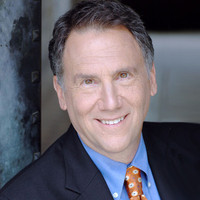Look at you, Little Marty Sunshine, tripping blithely through the cubicles, spreading joy as you prance through the workday. You love everyone and everyone loves you.
No doubt about it — you're one of the good guys. Yet, a successful business does not run on rosebuds and butterflies. Sometimes, you need a bad guy.
The Wall Street Journal's Sue Shellenbarger agrees. In a recent "Careers" column, "How Office 'Bad Guys' Handle the Role," Sue writes, "These people do the dirty work, delivering negative feedback, axing cherished projects or laying people off."
Sounds like fun, doesn't it? How terrific to be the firer instead of the firee. But the reality of the situation is somewhat more complex. "It's lonely being the bad guy," says Jennifer Lee Magas, who fired or laid off "dozens of employees in a previous job."
Why this should come as a surprise to Magas, I have no idea. When you fire everyone, and you're the only one left at work, chances are you will be lonely. [My suggestion — buy a bunch of store-window dummies and put them in the office chairs left by the dummies you fired. The office will seem full, and you'll love the fact that there's no one to give you dirty looks or cower under their desks as you approach.]
If you still think you'd like being the person everyone hates, remember that "being the bad guy is harder for those with healthy amounts of empathy." I don't think this will be a problem for you. Empathy is all about caring for others, and you haven't cared for anyone or anything since the tragic death of Titus, your pet goldfish, in third grade.
If you don't want to be the bad guy for personal reasons, do it for your career. "The qualities that foster success often aren't the same ones that make people popular," opines Stanford School of Business professor Jeffrey Pfeffer. One CEO who spoke to Pfeffer's class described the mental toughness required before, during and after conducting a mass firing. "If you want to be liked," he advised the students, "get a dog.'"
True that! And if you really want to show how callous you are and how unlikeable you can be when you try, don't dilly dally. Call the staff together and with everyone watching, fire your dog.
If you do a really good job at being really bad you might someday join the pantheon of badass bosses like Jonathon Bulkeley, a technology and online-advertising executive and investor who "who has fired eight company founders or chief executives."
That's a lot of heads on your wall, but Bulkeley is not done yet. "If you're honest and open, people may not like what you say, they may not like what you do, but they're not going to question your integrity."
That's for darn sure. They're also not going to come anywhere near you, for fear of getting hit by a stray firing.
Despite his record of eight CEOs struck down and vanquished, Jonathon Bulkeley is a pussycat compared to Joseph Seibert, a "technology and change-management executive and consultant."
For Seibert, change-management is a blood sport. "My career has been as 'the bad guy' he says "If they won't change, as the bad guy, I will recommend they be let go."
"He puts the same demands on himself," Sue Shellenbarger writes, "taking new-skills training several times a year." And if he can't master those new skills quickly enough, I'm sure he doesn't hesitate before giving himself the ax.
"I'm sorry, but in the last month you only fired three CEOs, two CFOs and a junior VP of marketing," he says to himself. "I'm just going to have to let me go."
While being a bad guy has its own rewards, it also has its stresses. Joseph Seibert takes care of his inner ax man through meditation. Strangely, he can always find an empty office in which he can meditate. Other bad guys and bad gals redeem themselves by helping others.
Executive Roni Chambers went from being characterized as a "dark female figure in silhouette, carry an ax" and stepped into the sunshine to run a career-transition coaching firm.
"She took satisfaction in helping many of her former co-workers and others find new careers" Sue Shellenbarger says. We don't know what happened then, but in a perfect world, we can only hope that in their new careers, Chambers was able to fire them, all over again.
Bob Goldman was an advertising executive at a Fortune 500 company, but he finally wised up and opened Bob Goldman Financial Planning in Sausalito, California. He offers a virtual shoulder to cry on at [email protected]. To find out more about Bob Goldman, and read features by other Creators Syndicate writers and cartoonists, visit the Creators Syndicate web page at www.creators.com.
Photo credit: A. Birkan ÇA?HAN






View Comments